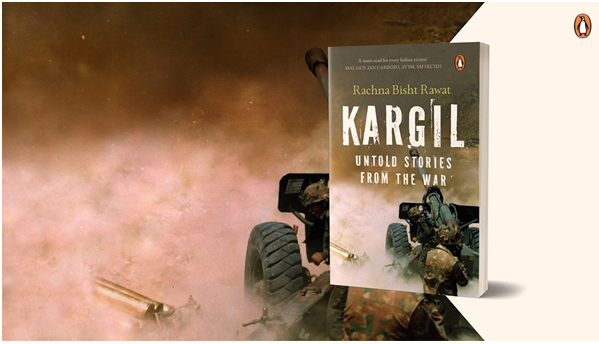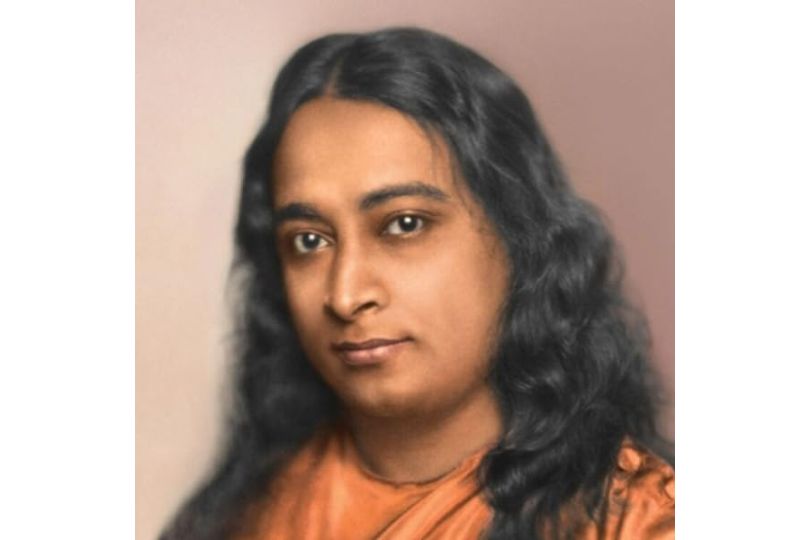Recounting Untold Stories from The Kargil War
Recounting Untold Stories from The Kargil Waron Aug 08, 2019

- By Rachna Bisht Rawat
Rachna Bisht Rawat’s ‘Kargil’ commemorates the 20th anniversary of the War with stories of courage of the men in uniform and those who loved them most.

The cordite-laced, desolate battlefields of Kargil were first beamed into our living rooms in the summer of 1999. It was the country’s first prime-time war, and the poignant ‘Last Post’ became a familiar tune.
For nearly two decades between, the War lived on only in the Memorial at Drass, forgotten under layers of snow, the geographical references of its peaks — Pt 4875, Pt 5140 — obliterated from people’s minds.

Not for septuagenarian Colonel Virender Thapar who has climbed a scree-scattered, rifle-shell-dotted 16,000-foot mountain every year since to keep a promise to his son Lt Vijayant Thapar, VrC of 2 Rajputana Rifles.
Vijayant, (Robin to his family) had written, ‘If you can, please come and see where the Indian Army fought for your tomorrow,’ in his last letter home, before he valiantly battled and fell to an enemy bullet, an act that earned him the Vir Chakra. The terrain is just a hiccup on the road to honour, which Virender travels, bearing a red dupatta sent by his wife to the sangar where Vijayant died and where his portrait now hangs alongside a goddess.
A glut of literature has been written on the operational details, but Rachna Bisht Rawat’s Kargil: Untold Stories from the War (Penguin) deals with vignettes that involve the soldier’s family and have fallen through the gaps in our memory.
Delhi-based Rawat, an award-winning former journalist and a writer of three other popular books on war and life in uniform in consonance with the Indian Army, says, “I was reluctant because I had already written two war books and found them emotionally harrowing to work on — the soldiers were old, their memories had faded. But my Army-officer husband said that Kargil would be a good choice because many of the men who had fought were still serving, with vivid memories of the War.”
Rawat worked on the book — with a message from the Defence Minister Rajnath Singh — for a year-and-a-half, urging the ADGPI to request units for citations that had not been awarded, stories of valour that had not been told. “Some Army units sent unusual stories. This time, I wanted to focus on the Army Medical Corps through the work of paratrooper and doctor, then Captain Vikram Grewal. He worked with five units at Muntho Dhalo, fashioning stretchers from rifles and running saline drips amidst shelling. Not a single man who reached him, including a Pakistani PoW, died.”

While operational details had to be cleared by the Army, with Rawat relying heavily on General VP Malik’s From Surprise to Victory, she says she was lucky to interview a man from the second patrol of 4 Jat.
“The torture and deaths of Captain Saurabh Kalia’s patrol party is well known. But this man, who had also been shot, helped reconstruct that terrain. It’s a pity that the Kalias are fighting a lonely battle for justice. Also, Commanding Officers who had enthused their boys to conquer the peaks, having witnessed their deaths and the struggles of their families, now feel they would never want another war. For the families, the pain of losing a loved one is the same. The only difference is pride.”
The stories swing between past and present, between the fighting in moonscapes where the cold is a constant companion and the chaos of modern India where the families keep vigil. Rawat travels to hill towns and villages amid sugarcane fields, cafes and cantonments to hear the stories — the gentle Buddhist warriors of the Ladakh Scouts, who thawed their jammed guns on stoves and rose to fight; the AIR station director, Leh, who sent her son to carry stores for the battlezone; the guitar-playing Capt Haneefuddin of Hindu-Muslim parentage who died on the borderlands between two countries that were separated on communal grounds; Naik Ikraj Nabi of 16 Grenadiers who trekked nine hours to give enemy soldiers an honourable burial; Pakistani Capt Karnal Sher Khan who was awarded Pakistan’s highest gallantry award based on a citation by an Indian officer impressed with his bravery; Flying Officer Gunjan Saxena, Kargil’s only woman warrior; the dark lonely work of the Special Forces; Meena Nayyar’s regret that her son Capt Anuj went to his death hungry, not having eaten for days, and why a painting of a ‘robin’ lords over the Thapar drawing room.
While the book celebrates those who were awarded, it also upholds those whose stories we don’t know of, but were just as brave.



.jpg)






.jpg)

.jpg)
.jpg)

.jpg)
.jpg)
.jpg)


Sorry! No comment found for this post.